YOUR BROWSER IS OUT-OF-DATE.
We have detected that you are using an outdated browser. Our service may not work properly for you. We recommend upgrading or switching to another browser.
Date: 22.11.2021 Category: general news, science/research/innovation, university people
Wrocław University of Science and Technology operates a brewery, where students learn about industrial beer production techniques. – It’s one of the oldest biotechnological processes known to mankind – says Mateusz Jackowski, a PhD student from the Faculty of Chemistry, who looks after the brewing installation at Wrocław Tech.
Mateusz Jackowski from the Group of Micro, Nano and Bioprocess Engineering, delivers classes to students of biotechnology and chemical engineering. During the course, which lasts a few weeks, he teaches them how to produce beer from scratch, i.e. starting with the preparation of ingredients and ending with the bottling of the finished product.
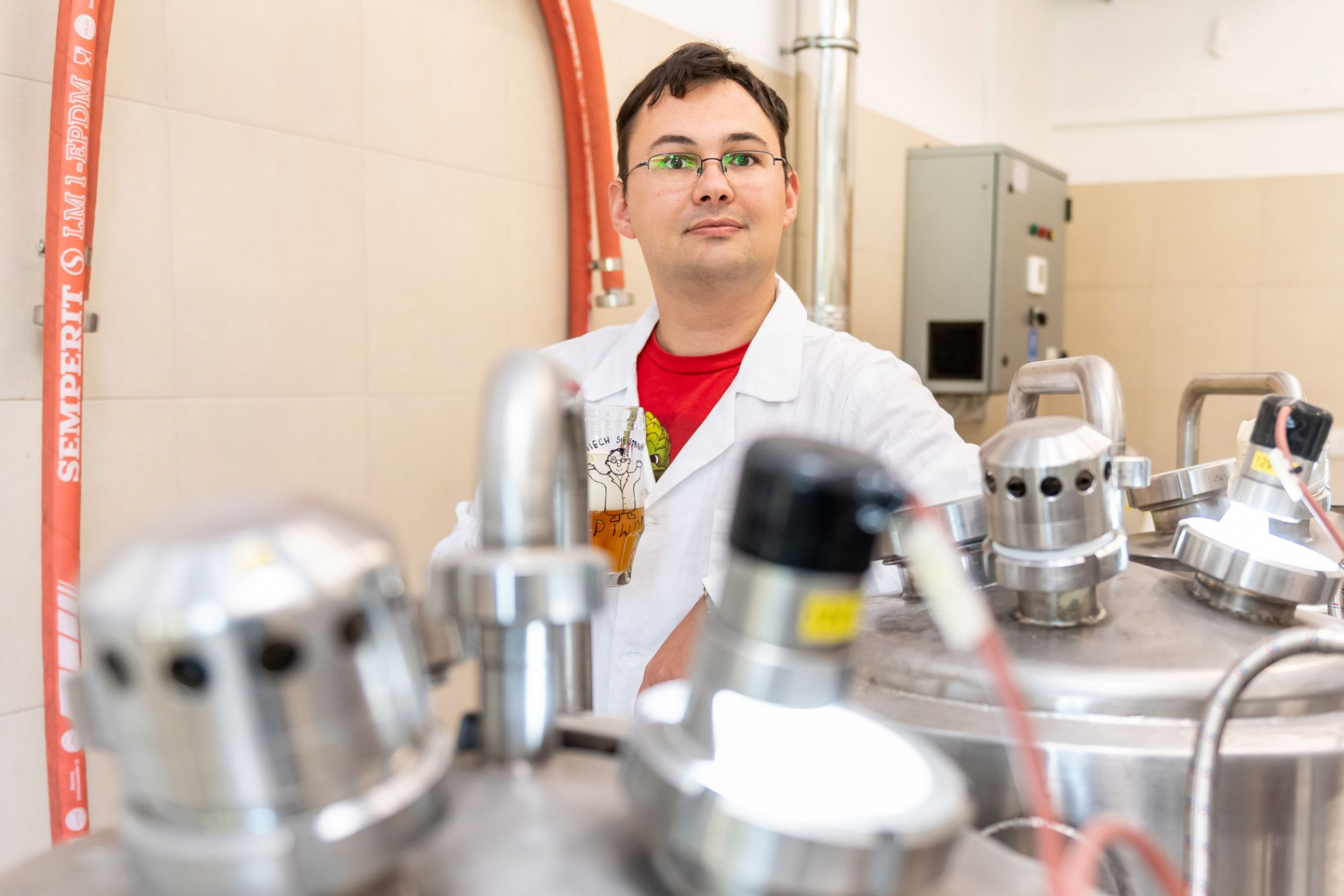
– Beer production is one of the oldest biotechnological processes known to mankind. I’ve found out that as early as the Neolithic Age, man performed certain activities which resulted in the production of something similar to beer. Currently, it’s the third most popular beverage in the world, after water and tea – says the doctoral student from Wrocław Tech.
However, he stresses that at the University, students learn about the process as seen not only from the angle of food technology but also from the engineering perspective.
The University’s laboratory is equipped with apparatus used by large breweries. The installation has a much smaller scale, however, as it must be suitable for the University’s conditions. Students learn how the various devices work so that they know how to use them in their work as brewers. They also go through every stage of beer making on their own.
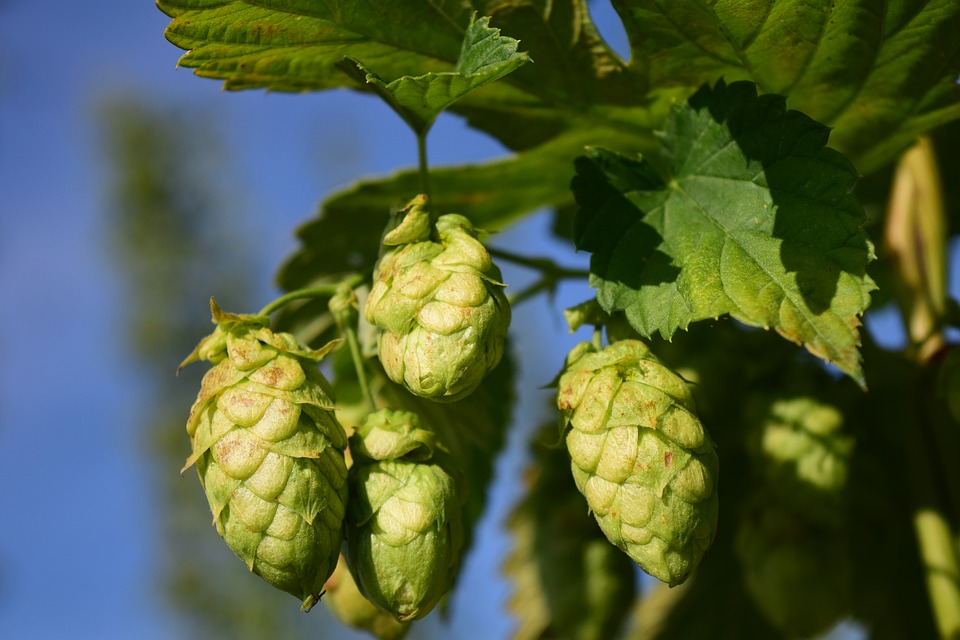 – The course starts with the preparation of the materials, i.e. filling the tanks with water and heating them to reach the right temperature, needed to start the process. The participants select ingredients and grind them according to certain parameters – the scientist explains.
– The course starts with the preparation of the materials, i.e. filling the tanks with water and heating them to reach the right temperature, needed to start the process. The participants select ingredients and grind them according to certain parameters – the scientist explains.
– Then we carry out the mashing process, involving specific enzymes contained in the malt. We study how starch becomes saccharified, i.e. how it transforms into sugar, which is the main food for yeast during fermentation – explains Mateusz Jackowski.
The next steps in the process are filtering out the malt from the wort and boiling the wort with hops to add aroma and bitterness to the beer. – Meanwhile, the thermal isomerisation of alpha acids to iso-alpha acids continues – adds the PhD student from W3. – The students cool the wort, pump it into fermenters, "infuse" it with yeast and then monitor the fermentation and lagering process for several weeks.
The beer is ready after about a month. Then all its quality parameters can be tested, as is done in brewery labs. Finally, the students learn how to bottle the beer, as this is also part of the process.
– The classes are comprehensive, but there are no organoleptic tests – explains the instructor. – This is an engineering course, not a catering one – concludes Mateusz Jackowski with laughter.
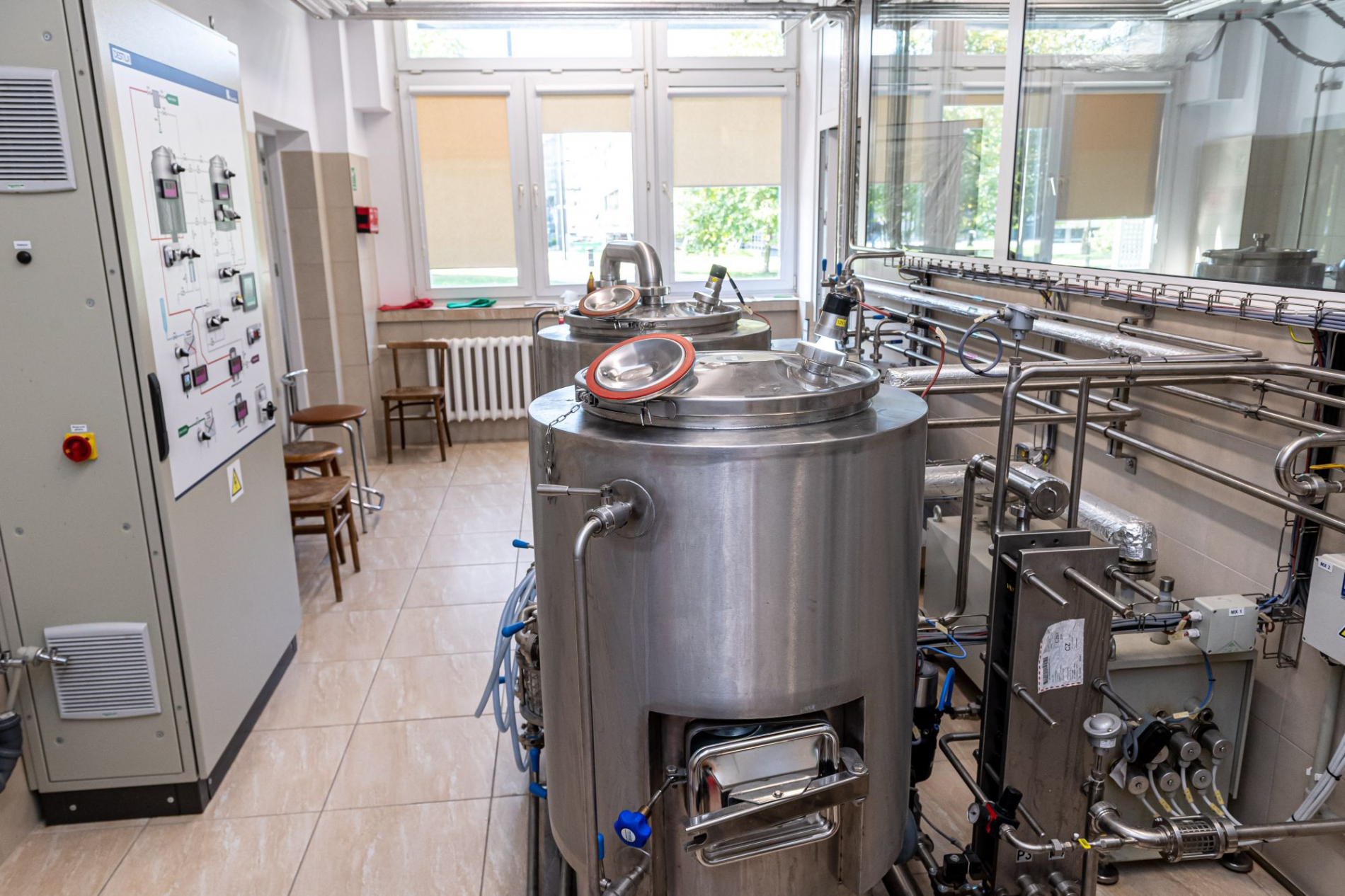 The brewery at Wrocław Tech has been operational since 2018. It contains a cooling installation, tanks for hot water preparation, mash and filter vats, a pump for pumping the wort between all the tanks, three fermenters, a tank for open fermentation, and a device for automatic cleaning of the system, the so-called CIP.
The brewery at Wrocław Tech has been operational since 2018. It contains a cooling installation, tanks for hot water preparation, mash and filter vats, a pump for pumping the wort between all the tanks, three fermenters, a tank for open fermentation, and a device for automatic cleaning of the system, the so-called CIP.
– We also have a beer filter, but we rarely use it because our beer is of such good quality that it doesn’t need this procedure. We use it more to show our students how to perform the processes they will come across in an industrial brewery – stresses the Wrocław Tech doctoral student.
Then he goes on to point out that, in fact, there are fewer and fewer qualified brewers in Poland. – Technical training schools have been dissolved, which makes the need for specialists in this field all the greater. And we already have graduates who have started working in the brewing industry – adds the scientist.
An increase in the production of non-alcoholic beer has been seen for some time.
– Consumers love the taste of beer. However, people are cutting down on their alcohol consumption because a healthy lifestyle is fashionable. At the same time, they don’t want to give up their favourite taste. Beer is also a very good isotonic drink containing large amounts of antioxidants, B vitamins, and biologically active substances found in hops. If it weren't for the alcohol, it would be the healthiest drink for people – points out Mateusz Jackowski.
Part of his doctorate at the Faculty of Chemistry, which he plans to defend this academic year, is dedicated to this very subject, i.e. the production of alcohol-free beer. The scientist explains that there are currently two approaches to making the beverage. The first is very technical, involving chemical engineering, which entails the removal of alcohol from the finished product using distillation, or membrane processes such as reverse osmosis or pervaporation.
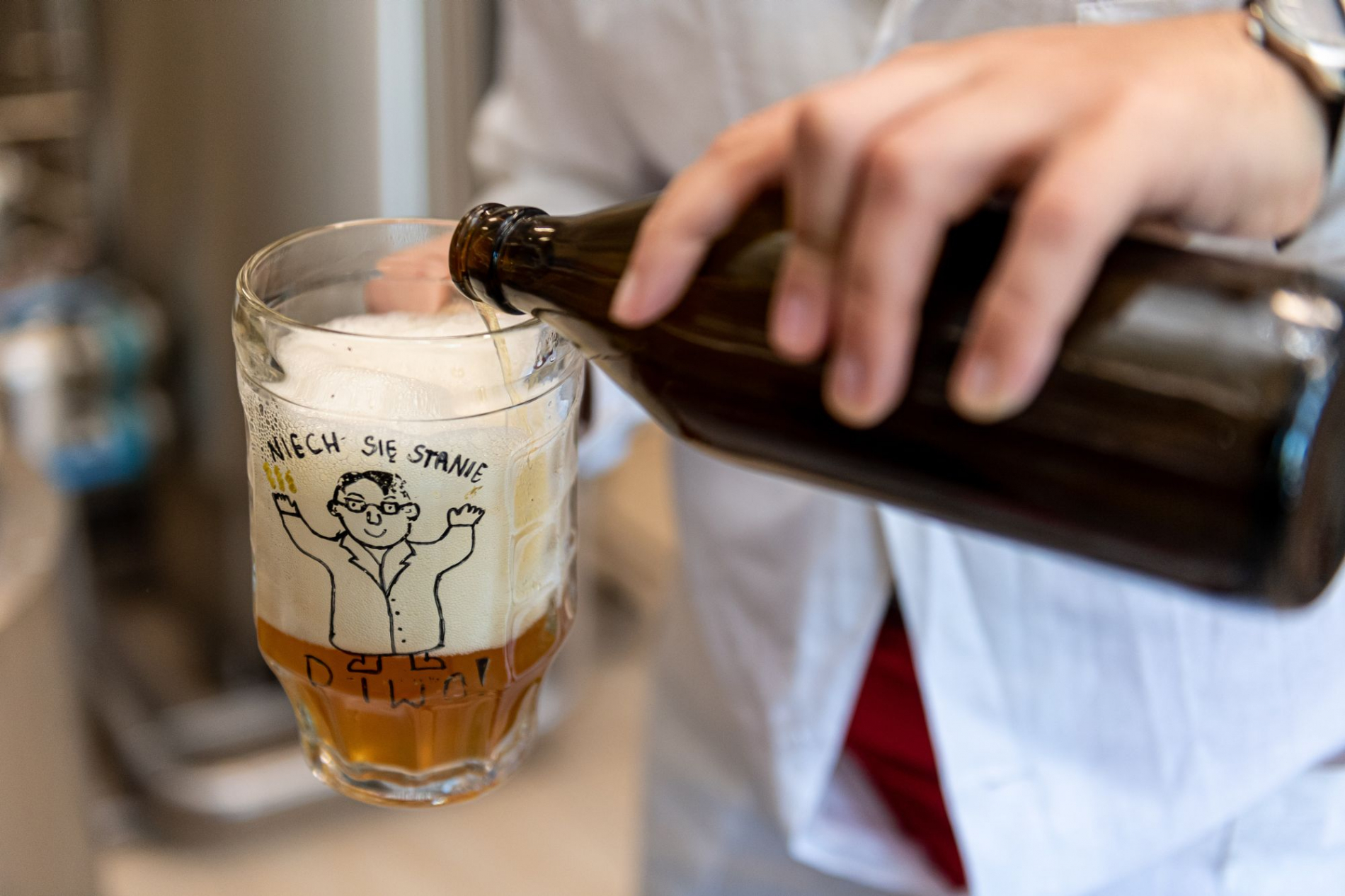
– The second method consists in interfering in the biochemistry of the process, i.e. creating such conditions so that the yeast doesn’t produce ethanol in quantities greater than those permitted by Polish law – says the doctoral student. He adds that Polish legislation assumes that non-alcoholic beer contains less than 0.5 per cent alcohol by volume. In Spain, non-alcoholic beer can have 1 per cent alcohol and in France – 1.2 per cent.
Mateusz Jackowski: – There are various ways to produce non-alcoholic beer using biological methods: you can change the mashing methods so that there are fewer sugars that the yeast can consume and use to create ethanol, you can change your yeast strains to ones that have problems fermenting maltose, which is the main sugar present in the wort, or even use microorganisms that can metabolise ethanol under aerobic conditions and transform it into other chemical compounds.
The first aspect to pay attention to, according to the scientist, is what you can smell right after you open the bottle.
– These are metabolic compounds responsible for yeast fermentation. If you can smell a sweetish odour or a faint smell of sulphur, it could mean that the fermentation process hasn’t finished and the yeast hasn’t had time to “clean up after itself” and process some of its intermediate metabolites present in beer – says Mateusz Jackowski.
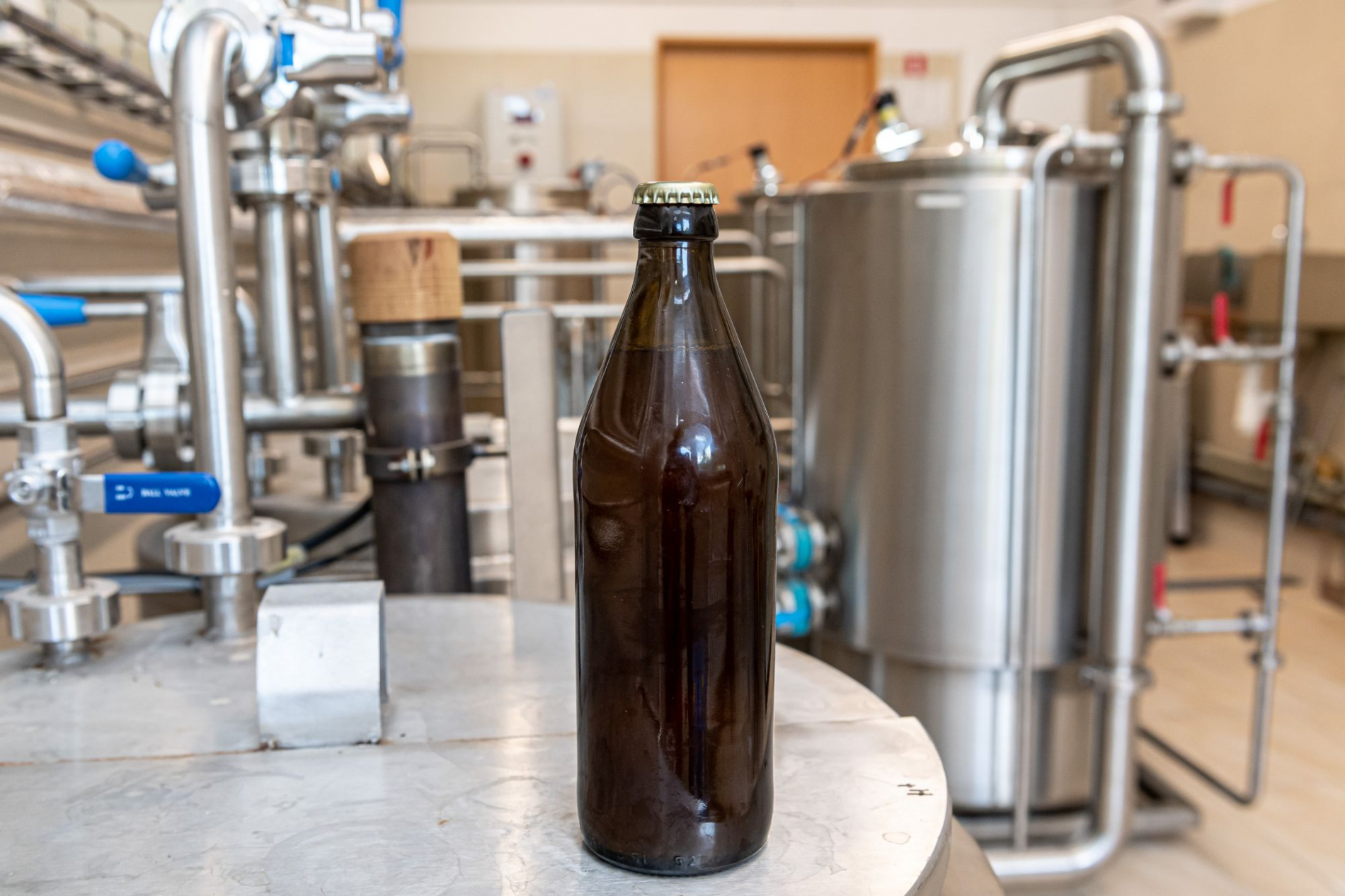 On the other hand, an apple-like smell may indicate that the fermentation process hasn’t gone well. An unpleasant smell of beer means that it’s been stored incorrectly, e.g. exposed to sunlight, and as a result, some of the compounds in the hops have started undergoing photolysis.
On the other hand, an apple-like smell may indicate that the fermentation process hasn’t gone well. An unpleasant smell of beer means that it’s been stored incorrectly, e.g. exposed to sunlight, and as a result, some of the compounds in the hops have started undergoing photolysis.
The second factor is taste. – Once I had a beer that tasted like butter. This means that the process was carried out at too high a temperature. Perhaps there was a cooling problem in the brewery, or the fermentation temperature was raised to speed up the process – explains the scientist.
He goes on to talk about the colour of beer: – The colour of a beer is a fairly stable parameter. Having said that, it’s worth examining whether it’s cloudy. Especially if the beer has been filtered or pasteurised and you see cloudiness after some time – this may mean that the beer is old or that some chemical processes unfavourable to beer quality are taking place.
When it comes to storing beer, it turns out that canned beer can have better parameters than bottled beer. – A can won’t let any light through at all, which means that it insulates beer very well against external conditions. Metal conducts heat very well, meaning that it’s easy to cool the beverage or heat it. Nowadays, a large number of craft breweries are investing in canned beer production lines. Better and better beers are now becoming available in cans.
The scientist points out that, as a beer connoisseur, he pays great attention to how a beer tastes and looks. – For instance, I can tell whether the beer wasn’t well made or whether its flavour is dull. I can be a strict judge, but to pour out a beer, saying “I'm not having it”, may have happened three times to me – admits the doctoral student.
He adds that it’s a good idea to drink beer in vessels intended for this purpose – proper glasses or mugs.
– You can focus more on its colour, taste, aroma, and foam, which is a vital element of this beverage. It’s important to perceive beer as a whole rather than looking for flaws, as some connoisseurs tend to do. It’s worth remembering that what’s a disadvantage for one style of beer may be an advantage for another, one that enhances its flavour – says the scientist.
Mateusz Jackowski admits that his interest in the subject of brewing began at university when he and his friends started brewing beer as a hobby. He has also done an apprenticeship at one of Wrocław's breweries. – And then I managed to combine my interests with my PhD project. On top of this, I became involved in the improvement of the brewing installation at Wrocław Tech. I’m constantly learning, attending conferences and specialised courses.
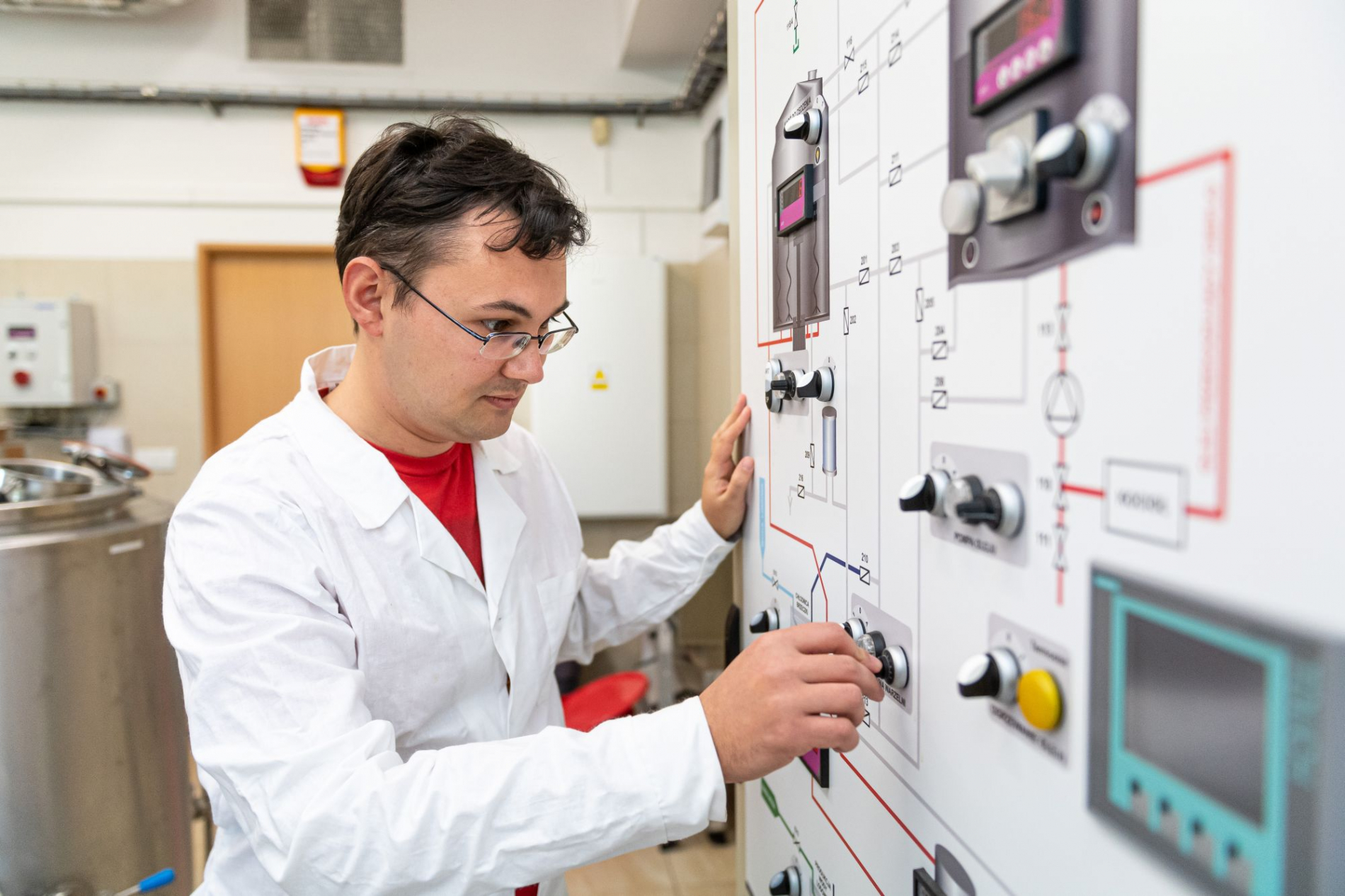 The scientist stresses that aside from providing students with knowledge about the beer production process itself he also strives to instruct them on how to take care of the installation, i.e.: operate it, repair defects, and maintain or upgrade the devices. – It’s a large dose of chemical and engineering knowledge – assures the doctoral student.
The scientist stresses that aside from providing students with knowledge about the beer production process itself he also strives to instruct them on how to take care of the installation, i.e.: operate it, repair defects, and maintain or upgrade the devices. – It’s a large dose of chemical and engineering knowledge – assures the doctoral student.
In his spare time, he also collects war paraphernalia. Part of his considerable collection has been exhibited at the Historical Museum in Lubin.
He also finds the time to teach chemistry in primary school. – It's by far more difficult work than what I do with university students – remarks Mateusz Jackowski with laughter. – Children need to be convinced that chemistry is interesting and worth learning. University students already know that – he adds.
ISZ
Our site uses cookies. By continuing to browse the site you agree to our use of cookies in accordance with current browser settings. You can change at any time.